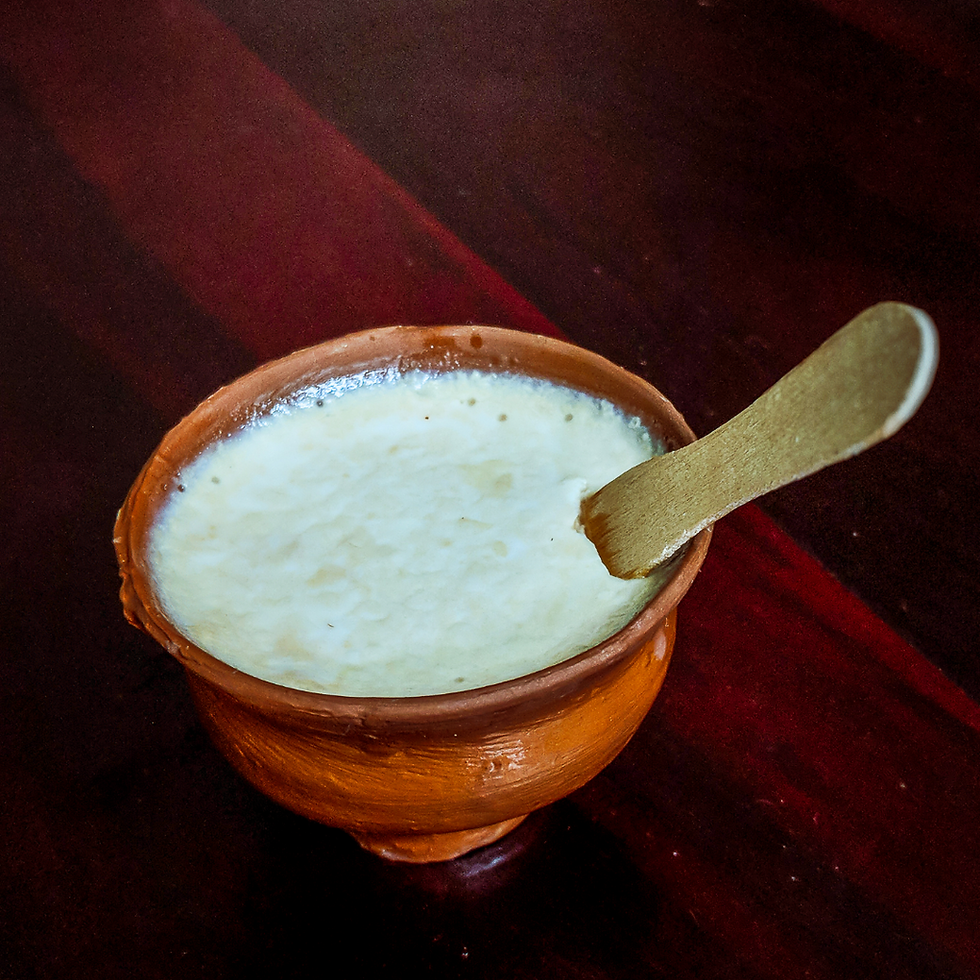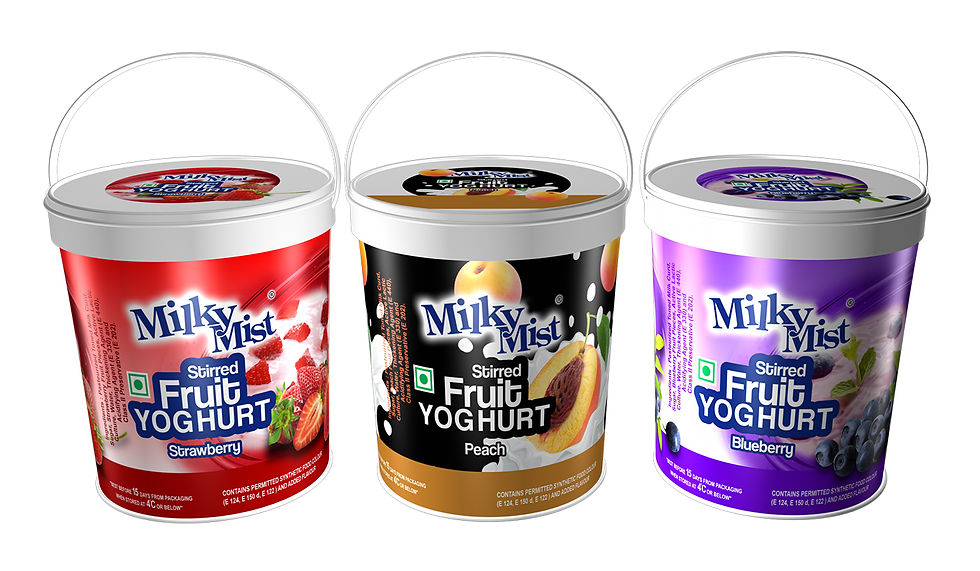Yoghurt - The Food Of Gods!
- Milky Mist
- Jan 20, 2021
- 2 min read

If you have ever wondered whether there is a difference between a cup of curd and a cup of yoghurt, then you are not alone! All of us would have at least once in our lifetime believed that the ‘curd’ sitting in our household refrigerators is addressed in the west as ‘yoghurt.’
But it actually is not. Let’s get this clear!
Yoghurt is a result of bacterial fermentation of milk, unlike curd, which is a result of acidic fermentation. While curd contains Lactic acid bacteria, yoghurt contains live strains of Lactobacillus bulgaricus and Streptococcus thermophilus. In yoghurt, the sugars in milk (lactose) are broken down into simpler forms (glucose and galactose), which then gets turned to lactic acid by a process called fermentation. This is done by the starter cultures. Hence, the pH drastically reduces to around 4.5, leading to protein coagulation, giving yoghurt its distinctive texture and flavour.
Yoghurt contains every other nutrient your body probably needs. It is a product that is viable and active. With skyrocketing popularity in the recent days, yoghurt has become the most sought after food in this world of diet obsession.
Why yoghurt?
▪ It is a great source of calcium, B vitamins (B5, B12, riboflavin), and trace minerals.
▪ Yoghurt is rich in minerals like phosphorus, iodine, potassium, zinc, and magnesium. These minerals are responsible for regulating your body’s metabolism and blood pressure as well.
▪ The presence of probiotics is what makes yoghurt boost the overall immune system of your body. It contains ‘friendly’ bacteria which are very much desired for the gut.
▪ Yoghurt is an excellent choice for fitness enthusiasts, as the protein-rich product helps in the overall muscle repair and growth.
▪ Consuming enough proteins is indispensable for proper appetite regulation. Also, as it provides longer satiety, yoghurt is preferred by the diet conscious.
▪ The proteins in yoghurt are easily digestible, which may be a result of the fermentation process.
▪ It helps with gastrointestinal disorders like bloating, indigestion, gastritis, IBS (irritable bowel syndrome), and constipation.
▪ It also soothes the muscular strain, thanks to the various amino acids present. Thus, giving better post-workout energy.
▪ Though it doesn’t contain vitamin D naturally, it is often fortified with it.

Addressed as the “Food of Gods” in the ancient world, yoghurt still continues to be worshipped as a ‘diet food.’ With the goodness of fruits in them, our yoghurts make amazing smoothie bowls. Pick from the 8 variants we offer - Strawberry, Mango, Peach, Guava, Pineapple, Banana, Blueberry, and Raspberry and dive into an explosion of flavours with an uncompromised share of nutrients!



The UIDAI has achieved a historic milestone in 2025, recording over 284 crore authentication transactions in a single month alone. This surge highlights how deeply integrated Aadhaar has become within India’s growing digital economy. By providing a reliable verification layer, the system continues to facilitate seamless access to banking, healthcare, and essential government services nationwide.